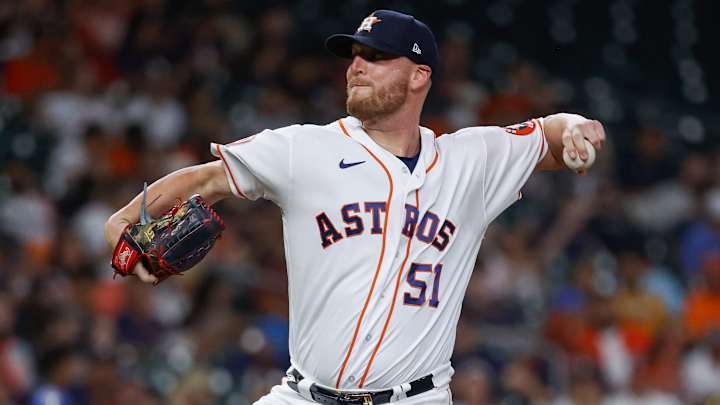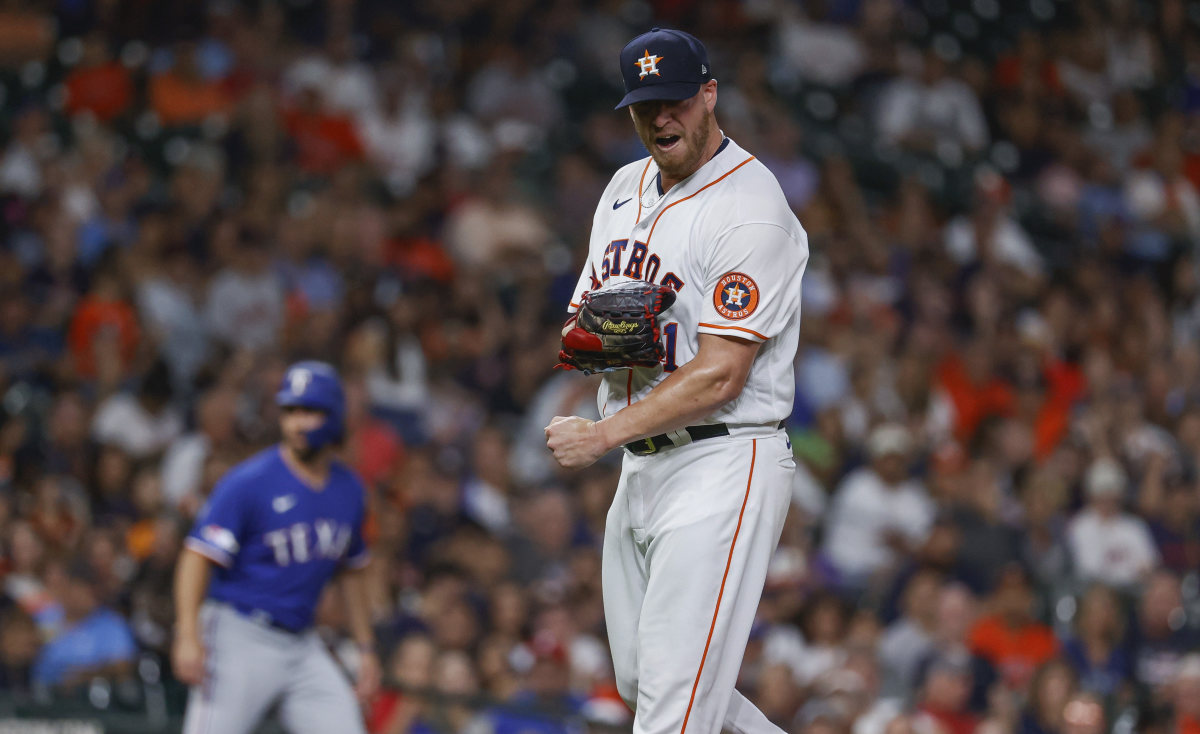Is the Houston Astros' Will Smith Experiment Working?

The Houston Astros traded for reliever Will Smith at the August 2 trade deadline to add a left-handed reliever to their bullpen.
It was a slightly vexing move at the time. While Houston did not have a lefty reliever on their roster, they still had one of the best bullpens in baseball against left-handed hitters.
Smith, for his part, was having a mediocre season and was coming off a particularly terrible July, in which he allowed seven earned runs in eight appearances.
Why would a team with a league-leading 2.76 bullpen ERA, deal for an aging reliever with mediocre numbers across the board? Presumably, the front office and coaching staff thought they could "fix" him.
As recently as last year, Smith was a pretty solid reliever, and as Astros fans surely remember, he pitched the final inning of the 2021 World Series, securing the championship for the Atlanta Braves. If any team can help him return to his former glory, it's Houston, an organization with a great reputation for developing pitching.
So, what is the plan to revitalize Smith's arm?
Will Smith Has A New Pitch Mix Against Righties
The former Brave has now made six appearances since the trade deadline. It is still early in his Astros tenure, but his new approach is already making itself clear: Smith has dropped the curveball from his pitch mix.
He has been throwing a curveball his entire career, primarily against right-handed batters. Now, Houston is instructing him to drop a pitch he's been using in the big leagues since 2012. What's the reasoning behind such a move?
Simply put, Smith's approach against right-handers isn't working anymore.
The southpaw is still getting the job done when he has the platoon advantage. Left-handed hitters slash only .231/.286/.395 against Smith, his K/BB is a very respectable 3.60.
With a righty at the plate, unfortunately, his walk rate nearly skyrockets from 7.1% to 12.8%, and his home run rate almost doubles from 2.9% to 5.6%. He has allowed far more hard contact to right-handed batters.
So, while the Astros acquired Smith for his skills against lefties, in order to fix him, they need to focus on his performance against opposite-handed hitters.
What does Smith do when facing righties that he doesn't against lefties? Throw a curveball.
In his time with Atlanta this season, Smith used his curve regularly against right-handed batters – close to 16% of the time. Since coming to Houston, he has thrown the pitch just three times. He has not thrown one at all in his last three appearances.
Instead, he has been relying on his four-seam fastball and his slider to get righties out. That's the same combo he's used against lefties for most of his career, with great success. Will it work against right-handers too?
The Results of Smith's New Approach

Thus far, in a minuscule sample size, Smith's new approach has had poor results. He has faced 13 right-handed batters, and they are hitting .308 with a 1.231 OPS against him.
Those are worrying numbers, to be sure. In 112 PA against righties prior to the trade, Smith allowed seven extra-base hits. He's already given up four in six games with Houston.
Thankfully, those four XBH don't tell the full story. Of the other nine right-handed hitters he has faced, Smith struck out four and walked none. Walks have been a huge problem for him against righties this season, so that is a highly promising sign.
The Statcast numbers also paint a better picture. While righties are hitting .308/.308/.923 against Smith since the trade, they have a .174 xBA and .254 xSLG. So far, this August has been one of the best months of his career versus right-handers according to the expected metrics.
Giving up four extra-base hits in 13 PA is bad. No one can deny that. But in such a small sample size, a few mistake pitches can really sway the numbers. It's important to look at the underlying stats as well, and most of those metrics have been quite kind to Smith.
Clearly, the Astros have a plan for their new reliever — ditch the curveball and focus on his two stronger pitches instead. It's too early to say whether or not the experiment is working, but given Houston's track record, there's a pretty good chance it all pays off.
If everything goes according to plan, Smith could be helping the Astros win a World Series championship this year, instead of throwing the final pitch to send them home.
More From SI's Inside The Astros:
- Report: Former Astros Pitcher Fiers' Contract Terminated By CPBL Club
- Grading the Houston Astros MLB Trade Deadline Transactions
- Jeremy Peña isn't Competing for Rookie of the Year, And That's a Good Thing
- Houston Astros Poised to Make Another World Series Run
- Mancini Mania: Behind the Houston Astros' Latest Streak of History
- Artist Brendan Murphy on His Signature Addition to Minute Maid Park
- Trey Mancini Gives Houston Astros a Much Deeper Lineup
- Astros Pass New York Yankees as Best Team in the American League
- Astros' Álvarez Stopped Striking Out and Became the Best Hitter in Baseball
- 'Tracking Like Wheels Up': A Long Journey Back For Astros Prospect McKee
Make sure to follow Inside the Astros on Twitter @InsideAstrosSI!
